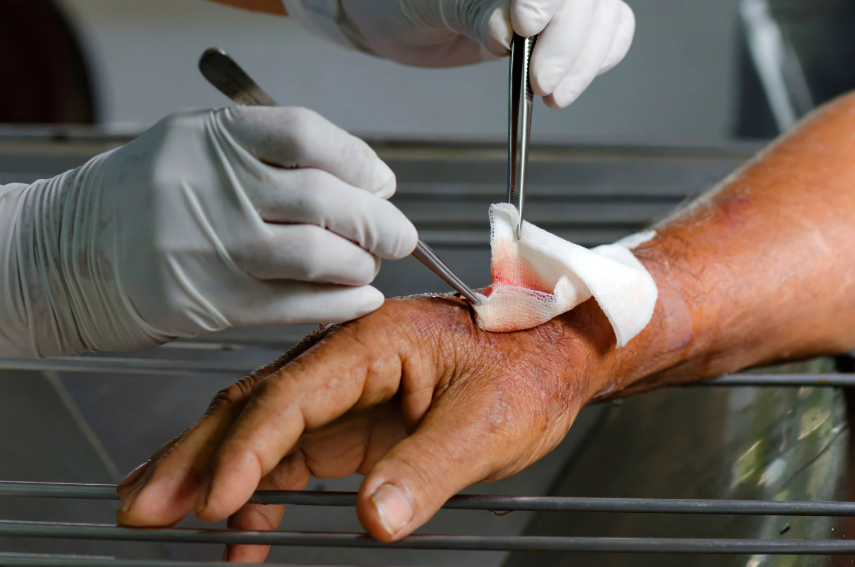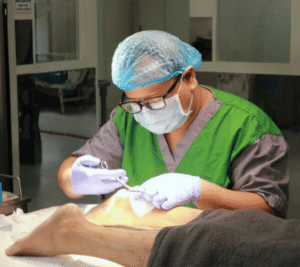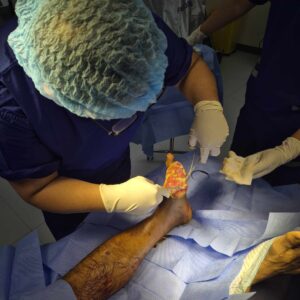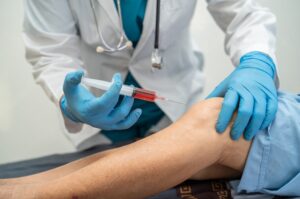Orthopedic treatment for infected wounds plays a crucial role in preventing severe health complications. Infections that develop in wounds, particularly those involving bones, joints, or soft tissues, can escalate into serious medical conditions if left untreated. The importance of timely orthopedic intervention cannot be overstated, as proper management ensures effective healing, prevents the spread of infection, and minimizes long-term damage. This article explores the significance of orthopedic treatment for infected wounds and how it helps in reducing the risk of complications.
Understanding Infected Wounds in Orthopedics
Orthopedic treatment for infected wounds is essential in cases where injuries become contaminated due to bacteria, fungi, or other pathogens. These infections can arise from surgical procedures, traumatic injuries, or chronic conditions such as diabetes. Open fractures, surgical incisions, and deep tissue injuries are particularly susceptible to infections. The presence of redness, swelling, pus, and delayed healing are common signs of an infected wound, signaling the need for immediate orthopedic intervention. Proper orthopedic treatment for infected wounds can help prevent severe conditions like osteomyelitis, sepsis, and tissue necrosis.
The Importance of Early Orthopedic Intervention
Seeking prompt orthopedic treatment for infected wounds is vital in avoiding complications. When left untreated, infections can spread to deeper structures, including bones and joints. Orthopedic specialists assess infected wounds using advanced diagnostic techniques such as imaging (X-rays, MRIs) and laboratory tests (blood cultures, biopsies). Early detection allows for targeted treatment, which may include debridement, antibiotic therapy, and wound management. Without timely orthopedic treatment for infected wounds, patients face an increased risk of prolonged hospital stays, surgical interventions, and even limb amputation.
Orthopedic Treatment Approaches for Infected Wounds
There are several orthopedic treatment methods for infected wounds, each tailored to the severity of the infection:
- Debridement and Wound Cleaning: One of the primary steps in orthopedic treatment for infected wounds is debridement, where dead or infected tissue is removed to promote healing. Proper wound cleaning with antiseptic solutions further prevents bacterial growth and infection spread.
- Antibiotic Therapy: Orthopedic specialists prescribe systemic and topical antibiotics as part of orthopedic treatment for infected wounds. Depending on the severity, intravenous (IV) antibiotics may be required to control the infection effectively.
- Surgical Interventions: In cases where infections reach the bone (osteomyelitis) or cause abscess formation, orthopedic treatment for infected wounds may involve surgical drainage or bone resection.
- Hyperbaric Oxygen Therapy: This advanced method in orthopedic treatment for infected wounds enhances oxygen delivery to affected tissues, accelerating healing and reducing bacterial growth.
Preventing Complications Through Orthopedic Care
Proper orthopedic treatment for infected wounds is critical in preventing severe complications. Untreated infections can lead to conditions such as:
- Osteomyelitis: A bone infection that can cause chronic pain and bone destruction.
- Septic Arthritis: Joint infections that lead to long-term mobility issues.
- Tissue Necrosis: Death of surrounding tissues, which may require amputation.
Orthopedic treatment for infected wounds includes continuous monitoring, wound dressing changes, and physical therapy to prevent long-term disabilities. Patients undergoing orthopedic treatment for infected wounds must follow strict hygiene practices and adhere to prescribed medications to ensure successful recovery.
Rehabilitation and Wound Care Management
After initial orthopedic treatment for infected wounds, rehabilitation plays a crucial role in recovery. Physical therapy helps restore movement and strength, particularly for patients recovering from infections in weight-bearing areas. Proper wound care management, such as keeping wounds clean and using appropriate dressings, is essential in orthopedic treatment for infected wounds. Additionally, lifestyle changes such as improved nutrition, blood sugar control (for diabetic patients), and avoiding smoking can significantly aid healing and reduce infection recurrence.
The Future of Orthopedic Treatment for Infected Wounds
Advancements in medical technology continue to enhance orthopedic treatment for infected wounds. Innovations such as bioengineered skin grafts, regenerative medicine, and nanotechnology-based wound dressings are revolutionizing wound care. Researchers are also exploring new antimicrobial therapies to improve the effectiveness of orthopedic treatment for infected wounds. As medical science progresses, more efficient, less invasive, and faster healing treatments will become available, further reducing complications and improving patient outcomes.
Takeaway
Orthopedic treatment for infected wounds is vital in ensuring proper healing and preventing severe complications. From early intervention to advanced surgical techniques, orthopedic specialists play a key role in managing infections effectively. By seeking timely orthopedic treatment for infected wounds, patients can avoid conditions like osteomyelitis, septic arthritis, and tissue necrosis. As medical advancements continue to evolve, the future of orthopedic treatment for infected wounds looks promising, offering improved recovery options and better patient care. If you suspect an infected wound, consulting an orthopedic specialist as soon as possible is the best way to ensure a positive outcome.






